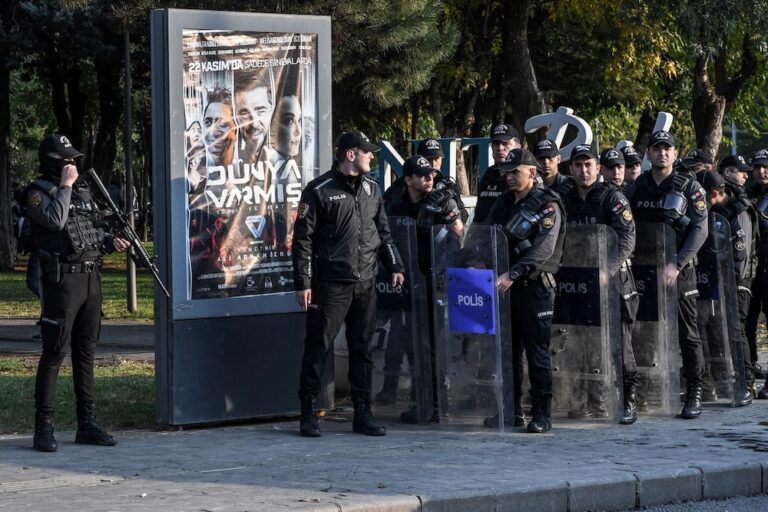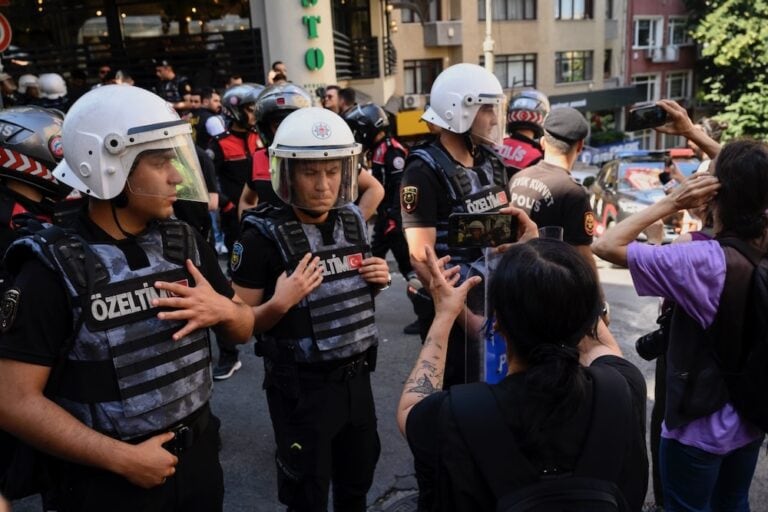(BIANET/IFEX) – Prosecutor Muhittin Ayata in Istanbul has ruled that the prohibition on publishing or printing articles on the operations against the ultranationalist group Ergenekon is “unjustified”; he also ended legal proceedings against “Cumhuriyet” newspaper for violating the ban. The Ergenekon case started with the discovery of a weapons arsenal in Ümraniye, Istanbul, in 2007. […]
(BIANET/IFEX) – Prosecutor Muhittin Ayata in Istanbul has ruled that the prohibition on publishing or printing articles on the operations against the ultranationalist group Ergenekon is “unjustified”; he also ended legal proceedings against “Cumhuriyet” newspaper for violating the ban.
The Ergenekon case started with the discovery of a weapons arsenal in Ümraniye, Istanbul, in 2007. At the beginning of 2008, there were 39 arrests of suspected members of an ultra-nationalist gang of that name. Those arrested include several retired army officers, academics and writers.
A publishing and broadcasting ban was declared as soon as the weapons arsenal was found, and it was reiterated when the arrests took place.
There are currently investigations and prosecutions of journalists who were accused of “violating the secrecy” of the operations by reporting on the court proceedings prior to the arrests and by writing about Ergenekon itself and the operations against it.
“Cumhuriyet” is facing numerous investigations and preliminary fines for publishing articles on Ergenekon. An article published on 29 January 2008, which reported that “there has been an arrest warrant for nine people in the Ümraniye case, including Hayal’s lawyer (Fuat Turgut, the defense lawyer of Yasin Hayal, a suspect in the Hrant Dink murder case) and Kömürcü” led to a further investigation.
However, the Sisli Chief Public Prosecutor in Istanbul decided on 25 February not to open a trial against newspaper representatives Ibrahim Yildiz and Güray Tekin Öz, arguing that the article had limited itself to reporting on court proceedings.
Ayata added that the printing and broadcasting ban issued by the Istanbul Ninth Serious Crimes Court had not included any justification. Citing a European Court of Human Rights (ECHR) decree in the “Gaweda-Poland” case in 2002, the prosecutor argued that “the court has to specify the limitations.”
Ayata ruled that because the Ergenekon gang issue was a matter of public concern, the press had a right to inform the public, including the right to report on when the arrests occurred, those detained for questioning, the transfer of the detainees to court, the release of the detainees, and the names of those arrested.
However, BIANET and “Günlük Evrensel” newspaper remain under investigation. The same prosecutor had also started an investigation into the BIANET news website for an article by Serdar Degirmencioglu, who had written about the Ergenekon operation in a story entitled “What are these arrests in the face of the real dangers?”. Degirmencioglu had criticised the fact that “Yenicag” newspaper had submitted to the ban, by totally ignoring the arrests of the ultra-nationalists and instead focusing on the “dangers of the foreign powers besieging the country.”
Given that the same article was later printed in “Günlük Evrensel” newspaper, the newspaper was also included in the investigation.


